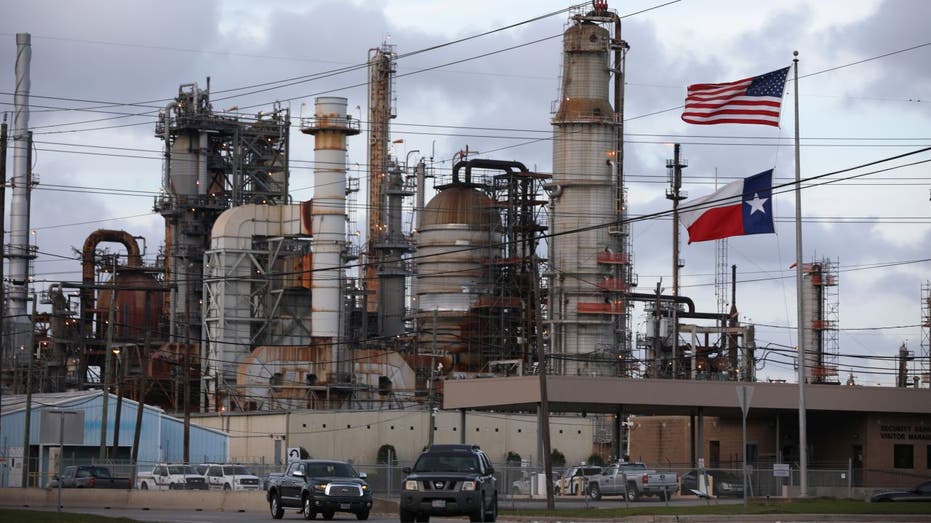US led global oil production for sixth straight year in 2023
The U.S. surpassed its 2019 world record for oil production with an average of 12.9 million barrels a day in 2023
Where is increase in oil production coming from?
Barrons Roundtable discusses the price of oil and the demand for natural gas.
The U.S. led the world in oil production for the sixth consecutive year in 2023, according to a new report from the Energy Information Administration (EIA).
Crude oil production in the U.S., including condensate, averaged 12.9 million barrels per day (b/d) in 2023 — a level which surpassed the American and global record of 12.3 million b/d that the U.S. set in 2019. Average monthly U.S. crude oil production also reached a record high in December 2023 at more than 13.3 million b/d.
"The United States produced more crude oil than any nation at any time, according to our International Energy Statistics, for the past six years in a row," the EIA wrote in its report.
RUSSIA REPLACED SAUDI ARABIA AS CHINA'S TOP OIL SUPPLIER IN 2023

The U.S. led the world in oil production for the sixth straight year in 2023, according to the EIA. - An American and Texas flag stand in front of the Chevron Corp. Pasadena Refinery in Pasadena, Texas, on Sunday, March 8, 2020. (Sharon Steinmann/Bloomberg via Getty Images / Getty Images)
The U.S., Russia and Saudi Arabia combined to account for about 40% of global oil production last year, having totaled 32.8 million b/d.
The three countries have produced more oil than any others since 1971, including production in the Russian Federation of the Soviet Union prior to the dissolution of the USSR in 1991.
The next three largest producing countries — Canada, Iraq and China — combined to produce 13.1 million b/d in 2023, slightly more than what was produced in the U.S. alone.

Russia and Saudi Arabia trailed the U.S. in oil production and the EIA projected that neither is likely to top the U.S. in the near future. (Christophe Gateau/picture alliance via Getty Images / Getty Images)
U.S. crude oil production has reached record-setting levels in recent years, less than two decades after production hit a low of 5.0 million b/d in 2008 after decades of decline dating back to the previous high of 9.6 million b/d in 1970.
The uptick in U.S. production began in 2009 as producers increasingly used hydraulic fracturing and horizontal drilling techniques. The upward trend has had two exceptions since 2009: in 2020 and 2021 when prices fell amid low demand for oil due to the economic impacts of the COVID-19 pandemic.
Production in the Permian Basin, which covers western Texas and eastern New Mexico, drove the increases in total crude oil and natural gas production the U.S. has seen in recent years.
DIAMONDBACK IN $26B DEAL TO BUY ENDEAVOR ENERGY IN GROWING PERMIAN BASIN PUSH

Production in the Permian Basin of western Texas and eastern New Mexico has driven the recent gains in U.S. oil and gas output. (Reuters/Angus Mordant / Reuters Photos)
The EIA's report noted that Russia had led the world in crude oil production in 2017, but production growth has lagged since then. Russia has faced sanctions on oil and gas sales from the U.S. and other Western countries since it launched its renewed invasion of Ukraine in Feb. 2022.
Russia was among the OPEC+ countries that announced production cuts in Nov. 2022 and Feb. 2023, as well as separate voluntary production cuts of 500,000 b/d.




















